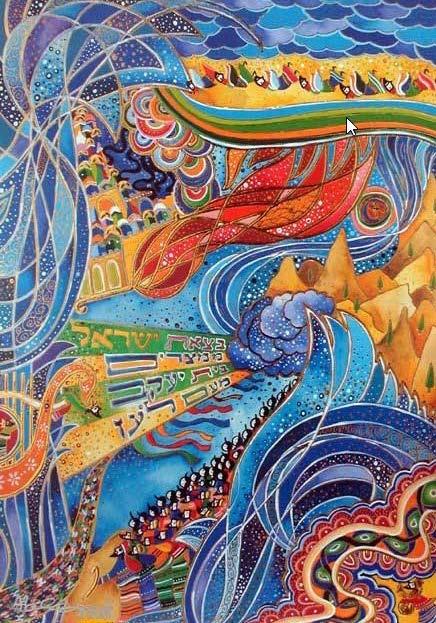
3 minute read
What's the Point of Praying?
from HaSofrim: May 2020
by AUJS
Ariel Elbaum
Hey everyone, for those that don’t know me, my name is Ariel Elbaum and I’m in my first year of studying Engineering at Monash after graduating from Yavneh in 2018. The current pandemic has affected many different aspects of our lives, from our schooling to our family interactions, and one that I want to discuss today is how we daven (pray). We are no longer able to have our minyanim and for me this has hurt my experience davening. There are many ways that people have been innovating in the area of Tefillah, such as musical Kabbalat Shabbat on Zoom before Shabbos comes in, balcony minyanim (not as feasible in Australia) or everyone davening individually but being on a Zoom call together. These methods may improve our experience, but I would like to discuss another path (of course not mutually exclusive to those previously mentioned).
Advertisement
Judaism has many procedures that are there to guide us through our lives as Jews help us experience certain feelings, but what can often happen is that these activities, when practiced for a long period and repetitively, can lead to the very detachment that they seek to solve. One method of ensuring that we don’t fall victim to the numbness of monotony is to continuously learn about the things we do and therefore we encounter each experience with an improved understanding of what we are really doing, that is the intent of this article. I will preface by saying I am not an expert, so I may be wrong and feel free to disagree with me, as well as the fact that this is a very large topic and we will only be scratching the surface here, so if an answer doesn’t satisfy the question raised take that as a fault on my part.
The first question I want to ask is that if Hashem (G-d) is all knowing and therefore knows what I am thinking, what is the point of asking Him for anything?
Secondly, why should prayer even work? Hashem is perfect and all good, and has his divine plan worked out, so why would anything I ask for change what He will do in my life? If something is meant to happen, then surely nothing I will do can change that‽

Rambam (12th century, Spain) writes in his book Moreh Nevuchim (Guide to the Perplexed) that the purpose of Tefillah (as well as all other practices in Judaism) is to “make us used to being involved in the command of Hashem” and that while we perform his actions we are meant to turn ourselves away from the matters of this world and focus purely on Him. Rambam explains that maybe the purpose of Tefillah isn’t just to ask for things that we want, but to build the relationship between us and our Maker. The same way that it takes regular engagement to make new friends, our relationship with Hashem needs us to communicate with him frequently.
Rabbi Yosef Albo (15th century, Spain) in his Sefer Ha’ikarim (Book of Principles) explains that the purpose of Tefillah is not to somehow change G-D’s mind, but rather to change ourselves. Now that we have changed ourselves, the plan of our life changes. Its not that we are trying to convince Hashem that He should do something different, we are working on ourselves. Thus, when we daven, we should concentrate on what we’re saying, and if you have a siddur with English, I encourage you to read parts in English as well.
I hope these two perspectives begin to answer why we daven; we don’t just ask Hashem for things, rather we are trying to build a relationship and we aren’t trying to persuade Hashem but improve ourselves as people.
I hope this has inspired you to learn more about the experiences that make up our lives as Jewish people. I am always open to chat with anyone about any topics I mentioned or any others if you’d like to, then send me a message on messenger (especially if you disagree with me!)









